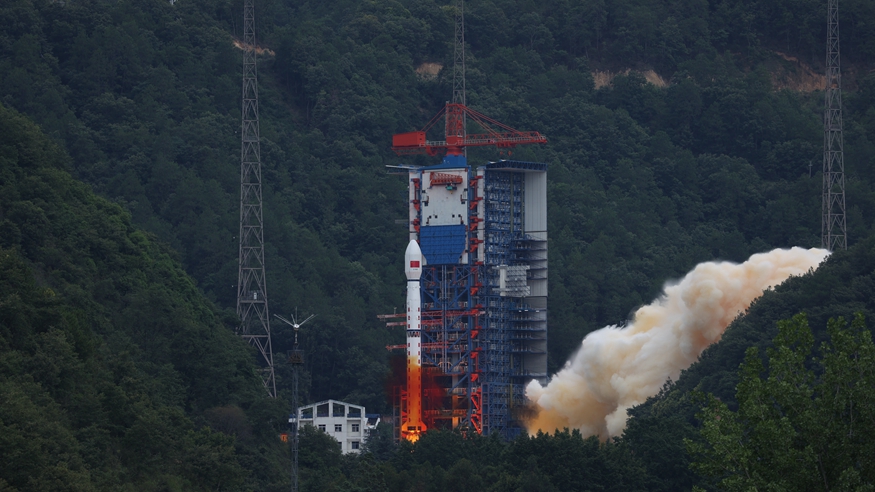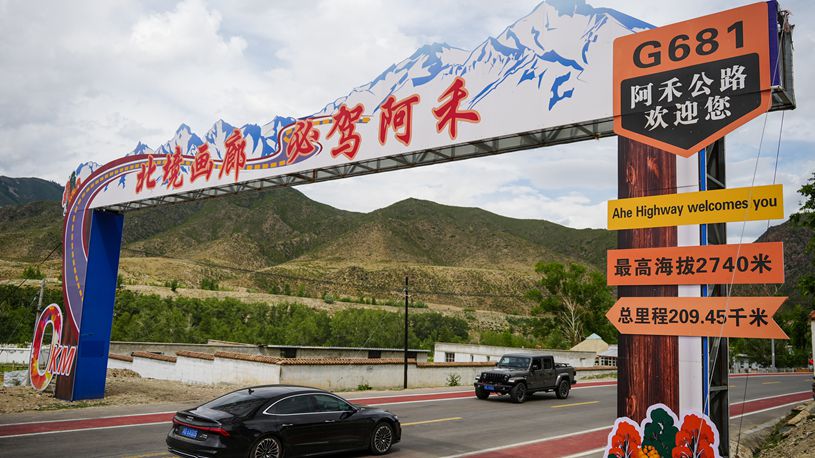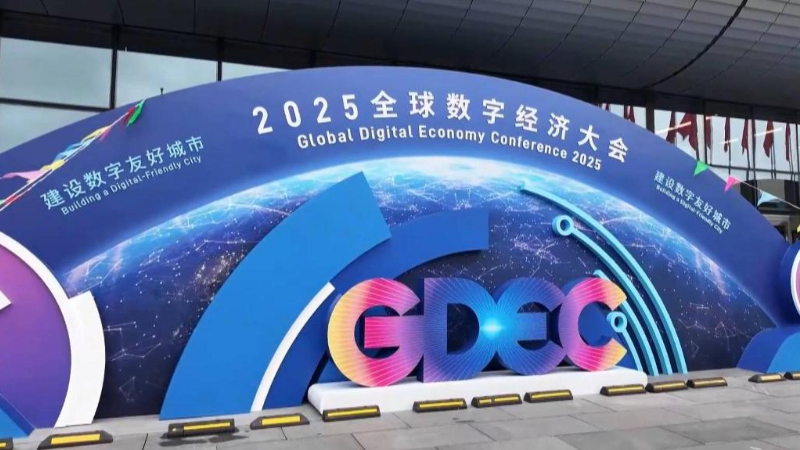Xinhua Headlines: Landmark effort launched at Beijing conference to democratize digital processes
Source: Xinhua
Editor: huaxia
2025-07-03 23:17:32
* As the digital economy reshapes societies, China is providing valuable examples and solutions for the world to expand its benefits.
* Technologies from industry and academia need multilateral platforms to become "digital public goods."
* Chinese private companies are also expanding their global footprint in the digital economy and taking their digital expertise to the world stage.
BEIJING, July 3 (Xinhua) -- As the digital economy reshapes societies, a critical question emerges: how can its benefits move beyond privileged tech hubs to empower cities everywhere?
At the 2025 Global Digital Economy Conference in Beijing, more than 40 partner cities spanning Europe, North America, Asia-Pacific, the Middle East and Latin America answered by launching the Global Digital Economy Cities Alliance (DEC40) -- a landmark effort to democratize digital processes.
While 5G and artificial intelligence (AI) advance rapidly, infrastructure gaps and governance challenges exclude billions, especially in developing nations. DEC40 directly tackles it by institutionalizing multilateral cooperation on cross-border data rules, ethical AI and smart city solutions -- frameworks essential for inclusive growth.
CHINA'S ROLE AS CATALYST
"Technologies from industry and academia need multilateral platforms to become true 'digital public goods,'" stressed Zhao Houlin, former secretary-general of the International Telecommunication Union, at the conference running from Wednesday to Saturday.
China's practical models, showcased through DEC40, offer scalable blueprints: The digital governance platform of the city of Beijing streamlines administrations, serving 500,000 civil servants. Its Level-4 autonomous vehicles logged 170 million km, a replicable testbed for global urban mobility.
"Urban development in the digital era requires not just technological breakthroughs, but also new ideas for governance and stronger international cooperation," said Jiang Guangzhi, director of the Beijing Municipal Bureau of Economy and Information Technology. "We are ready to share our practice and provide a 'Beijing Solution.'"
"These innovations will be shared through the DEC40 platform to help other cities, especially in developing countries, adopt adaptable technology solutions," Jiang added.
Under DEC40, Beijing has a preliminary plan to implement three major initiatives. Over the next three years, the Chinese capital aims to provide digital infrastructure planning and consulting services to 100 cities in developing countries, train 100 city-level digital governance officers, and jointly build 10 demonstration projects in smart agriculture and digital healthcare.
Beijing has already established connections with cities in countries such as Angola and Tajikistan, and the first training course for 50 officials is expected to be launched this year.
Looking ahead, Rakhimova Durdona Shukurrullayevna, deputy mayor of Tashkent, Uzbekistan, believed that cooperation with Beijing will help ensure every resident shares in digital dividends.
PRIVATE SECTOR'S CROSS-BORDER IMPACT
Beyond government-led efforts, Chinese private companies are also expanding their global footprint in the digital economy and taking their digital expertise to the world stage.
Chinese autonomous driving leaders like Pony.ai and WeRide now operate across more than eight countries, from Paris to Riyadh, contributing to local job creation in operations and tech support.
"Our expansion attracts global suppliers to invest locally, building industrial clusters," said Peng Jun, Pony.ai co-founder and chief executive officer.
And benefits go beyond factories. According to Zhang Yuxue, WeRide's director of PR and marketing, local partnerships have also led to job creation in areas such as fleet management and technical support.
As Chinese autonomous driving firms gain global traction, collaboration with global players is deepening. Uber, for instance, has teamed up with WeRide and Pony.ai to integrate Chinese-developed autonomous driving technologies into its ride-hailing platform, starting with pilot operations in the Middle East.
"It's clear that the future of mobility will be increasingly shared, electric and autonomous," said Uber CEO Dara Khosrowshahi. "We look forward to working with Chinese leading autonomous vehicle companies to help bring the benefits of autonomous technology to cities around the world."
Co-organized with the UN Development Program, the Global Digital Economy Conference signals that "digital inclusion is now a shared governance imperative." As Beate Trankmann, resident representative of the United Nations Development Program in China, underscored, collective action turns tech potential into "tangible human benefits." (Reporting by Huang Zechen, Guo Xiaoyu, Dong Suyu, Wang Junlu, Luo Xin and Yang Na; video reporter: Pang Yuanyuan, Xie Han; video editors: Wang Han, Liu Xiaorui, Li Ziwei) ■













Comments